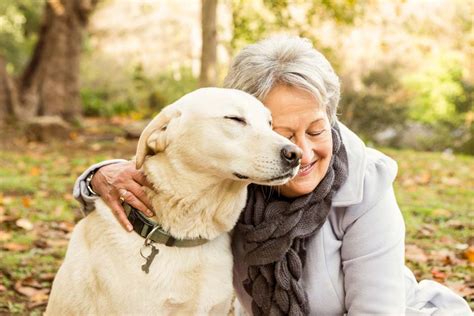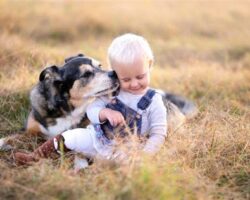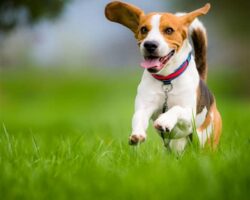As our furry friends age, it’s important for us to recognize and understand the changes in their health and behavior. Senior dogs require a different level of care and attention to ensure they live out their golden years comfortably and happily. In this post, we will explore the signs of aging in dogs and how to provide them with the care and support they need. From creating a comfortable environment to managing their weight and exercise routine, we’ll discuss all the essential aspects of caring for aging canine companions. We’ll also touch on the importance of regular veterinary check-ups, providing a nutritious diet, and keeping them mentally stimulated and active. Most importantly, we’ll explore the emotional support and love that senior dogs crave and deserve. Let’s ensure that our aging canine companions receive the care and attention they need to live their best lives.
Recognizing the signs of aging in dogs
As our furry friends grow older, it is important for pet owners to be aware of the signs of aging in their dogs. Recognizing these signs can help in providing the necessary care and support to ensure their well-being in their senior years.
One of the most common signs of aging in dogs is a decrease in energy levels. Older dogs may become less active and may experience fatigue more easily. They may also show signs of stiffness or difficulty moving around, which could indicate joint pain or arthritis. Understanding these changes in their physical abilities is crucial in providing the right support.
Another important aspect of caring for aging dogs is providing a nutritious and balanced diet. As dogs age, their nutritional needs may change, and they may require a diet that is tailored to their specific needs. It is important to consult with a veterinarian to ensure that they are getting the right nutrients to support their aging bodies.
In addition to physical changes, aging dogs may also experience cognitive decline. They may show signs of confusion, disorientation, or changes in their behavior. Creating a comfortable and safe environment for them is essential in helping them navigate these changes with ease.
Understanding the changes in their health
As our beloved dogs age, their health needs change, and it’s important for pet owners to understand these changes in order to provide the best care. One key aspect of understanding the changes in their health is recognizing the signs of aging. Senior dogs may experience decreased energy levels, weight gain or loss, and changes in appetite. It’s important to monitor these changes and consult with a veterinarian to address any concerns.
Another crucial aspect of understanding their health changes is being aware of common health issues that can arise in older dogs. These may include arthritis, heart disease, diabetes, and cognitive dysfunction. By staying informed about these conditions, pet owners can take proactive steps to manage their dog’s health and well-being.
Additionally, providing nutritious and balanced diet plays a significant role in maintaining a senior dog’s health. As their metabolism slows, it’s important to adjust their diet to prevent obesity and maintain muscle mass. Special senior dog food formulas are available to address their changing nutritional needs.
Finally, regular veterinary check-ups and screenings are essential for monitoring and addressing any health changes in senior dogs. Routine blood work, physical exams, and diagnostic tests can help catch any potential health issues early, allowing for prompt treatment and management.
Providing a nutritious and balanced diet
As our dogs age, it becomes even more crucial to pay attention to their dietary needs. Nutritious and balanced meals are essential for their overall health and well-being. This means providing a diet that contains the right balance of protein, carbohydrates, fats, vitamins, and minerals. Older dogs may have specific dietary requirements, so it’s important to consult with a veterinarian to determine the best diet for your senior pup.
Senior dogs may also have changes in their appetite and metabolism, so it’s important to monitor their weight and adjust their portions accordingly. In addition to the main meals, it’s important to provide healthy snacks that can help support their aging bodies.
When selecting commercial dog food, it’s important to look for options that are specifically formulated for senior dogs. These foods are often tailored to their needs, with added nutrients to support joint health and cognitive function. Alternatively, one can also prepare homemade meals for their senior dogs, but it’s crucial to ensure that these meals are well-balanced and meet their nutritional requirements.
Overall, providing a nutritious and balanced diet is crucial for supporting the health and longevity of senior dogs. It’s also important to keep in mind that the dietary needs of senior dogs may change over time, so regularly reassessing their diet with the help of a veterinarian is essential.
Creating a comfortable and safe environment
As our dogs age, it’s important to ensure that they have a comfortable and safe environment to live in. This means providing them with a soft and supportive bed to rest on, especially if they suffer from arthritis or joint pain. Placing their bed in a warm and quiet area of the house can also help to minimize stress and discomfort.
It’s also essential to create a safe environment for senior dogs by removing potential hazards from their living space. This may include securing loose electrical cords, keeping toxic plants out of reach, and using safety gates to block off stairs or other dangerous areas.
Another way to create a safe environment for older dogs is to provide them with a non-slip surface to walk on. This can help to prevent accidents and injuries, especially for dogs with mobility issues. Additionally, making sure that their food and water dishes are easily accessible and at a comfortable height can help to promote healthy eating and drinking habits.
Overall, creating a comfortable and safe environment for senior dogs is crucial for their well-being and quality of life. By taking these simple steps, we can help our aging canine companions to feel secure, relaxed, and happy in their later years.
Keeping them mentally stimulated and active
As dogs age, it’s important to keep them mentally stimulated and active to maintain their overall well-being. Mental stimulation can help prevent cognitive decline and keep their minds sharp, while physical activity can help maintain their muscle strength and joint flexibility. There are several ways to ensure that senior dogs stay mentally and physically engaged.
One way to keep senior dogs mentally stimulated is by introducing them to new experiences and environments. Taking them on different walking routes, visiting new dog-friendly parks, or simply rearranging the furniture at home can provide a change of scenery and engage their curiosity.
Engaging senior dogs in mental games such as puzzle toys, hide and seek, or scent tracking can also keep their minds sharp and provide mental stimulation. These activities encourage problem-solving skills and help prevent boredom, which can lead to behavioral issues in older dogs.
Alongside mental stimulation, it’s important to ensure that senior dogs engage in low-impact physical activities to maintain their overall health. This can include leisurely walks, gentle play sessions, and low-impact exercises such as swimming or hydrotherapy to keep their muscles and joints healthy.
Managing their weight and exercise routine
As dogs age, it’s important to pay attention to their weight and exercise routine to ensure they stay healthy and happy. Just like humans, senior dogs can experience weight gain and loss of muscle mass, which can lead to a range of health issues. It’s crucial to manage their weight through a balanced diet and regular exercise to keep them in the best shape possible.
One of the first steps in managing a senior dog’s weight and exercise routine is to consult with a veterinarian. They can provide guidance on the ideal weight for the dog based on their breed, age, and overall health. From there, a personalized diet and exercise plan can be created to help the dog maintain a healthy weight and muscle mass.
When it comes to exercise, it’s important to tailor the routine to the dog‘s abilities. Low-impact activities such as swimming or gentle walks can help maintain muscle tone and cardiovascular health without putting too much strain on aging joints. Regular, short walks can help keep the dog active and engaged without overexertion.
Additionally, monitoring the dog‘s weight and adjusting their diet and exercise routine as needed is crucial. As they age, their nutritional needs may change, and their exercise abilities may fluctuate. Being attentive to these changes and making adjustments accordingly can help keep them in optimal health and improve their overall quality of life.
Regular veterinary check-ups and screenings
Regular veterinary check-ups and screenings are essential for maintaining the health and well-being of senior dogs. As our beloved pets age, they become more susceptible to various health issues and conditions, making it crucial to stay proactive in monitoring their overall health. By scheduling regular check-ups with a qualified veterinarian, pet owners can ensure that any potential health concerns are addressed in a timely manner.
During these check-ups, veterinarians can conduct thorough physical examinations to assess the overall condition of the dog, including their weight, teeth, coat, and more. They can also perform screenings for common age-related conditions such as arthritis, diabetes, and heart disease. Additionally, these appointments provide an opportunity for pet owners to discuss any changes or concerns they have noticed in their dog’s behavior or health.
Early detection of health issues can significantly impact the treatment options and overall prognosis for senior dogs. Through regular check-ups and screenings, pet owners can take proactive steps to manage their dog’s health and provide the necessary care and support as they age. These appointments also allow veterinarians to make recommendations for appropriate preventive care, including vaccinations, dental cleanings, and parasite control, tailored to the specific needs of senior dogs.
Ultimately, regular veterinary check-ups and screenings play a vital role in ensuring that senior dogs receive the necessary medical attention and support to live happy, healthy lives as they age. By prioritizing these appointments, pet owners can help to identify and address any potential health concerns early on, improving the quality of life for their senior canine companions.
Emotional support and love for senior dogs
As our furry friends get older, they may start to experience changes in their physical health and cognitive abilities. It’s important for dog owners to recognize these signs of aging and provide emotional support and love to help them through this phase of life.
Senior dogs can benefit greatly from regular affection and attention from their owners. Spending quality time with them, whether it’s through gentle petting, soothing massages, or simply sitting close by, can provide comfort and reassurance to our aging canine companions.
In addition to physical touch, it’s also essential to maintain a positive and loving environment for senior dogs. This includes creating a safe and comfortable living space, ensuring they have access to their favorite toys and familiar objects, and minimizing any sources of stress or anxiety in their surroundings.
Furthermore, showing emotional support for senior dogs involves being attentive to their needs and emotions. This may include being patient and understanding if they display signs of confusion or disorientation, as well as offering encouragement and reassurance during times of uncertainty.





